
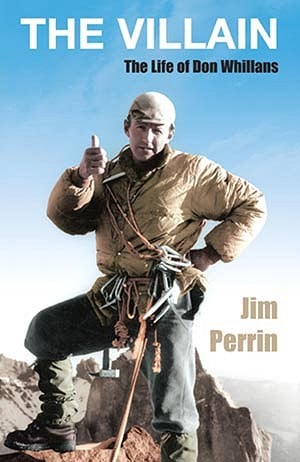
I'll have to admit I approached Jim Perrin's biography of Don Whillans, The Villain (Hutchinson), with some trepidation – perhaps the sort of trepidation I might have felt approaching the legendary 5' 3" 'pocket Hercules' himself. What sort of Whillans would I encounter in these closely researched and long-germinating pages? What blend would I find of the archetypal climbing hero and the moody, belligerent 'villain'? Just how much of an iconoclastic hatchet job would the book be in the hands of Perrin, renowned vivisectionist of the British climbing scene? The book's twenty-year gestation itself did not bode well. Rumours had it that Perrin had unearthed such a misogynistic bucket of worms that the project had become about as appealing as a Whillans route on Cloggy on a damp and windy day.
My fears were unfounded, for this is a richly detailed masterpiece of biography that cuts through all the hagiography and mythology, and is imbued throughout with a spirit of fairness and balance. It gains strength relentlessly, chapter after chapter, culminating in a superlative, gem-filled penultimate chapter entitled 'Cult Heroes'. In my judgement it is one of the most important British mountaineering books to have been written for several decades, not least because we also learn an enormous amount about the whole culture of British climbing in that most innovative era of 1950-1975.
Some have criticised the book for being a little too opinionated in the Perrin style, but I find him here satisfactorily detached, with most of his personal asides delightfully relegated to a wealth of entertaining and interesting footnotes. Perrin is in fact remarkably restrained throughout, particularly in withholding some of the more shocking stories of Whillans' treatment of women in general, and Audrey in particular, that have done the rounds over the last decade.
What emerges, ultimately, is a rather sad, even tragic, picture of a psychologically complicated man – a 'self-ruined archangel', in Perrin's wonderful phrase – who was 'temperamental, bellicose, quick to take offence'; and whose public persona of witty superstar concealed a simmering cauldron of 'rancour, ego, resentment, [and] aggression.' While anyone who looked up to him (like Derek Walker or Steve Read, or a hundred others) he typically, and understandably, treated very well, many of his peers found him far more difficult.
One of the more refreshing aspects of the book is that Perrin has little time for the over-romanticised myth of 'Whillans the Dobber', and does a good debunking job in showing that many of these tales have been highly exaggerated, while those that are true have a distinctly unsavoury character, leaving one with the impression of a fighting schoolboy who never quite grew up, or learned how to deal with conflictual situations.
Part of the problem, it seems, was that Whillans was continually playing up to his own self-created myth, and his hero-worshipping public. His occasional public declarations of contentment, for example, were not always convincing. In his autobiography, co-written with Alex Ormerod (Don Whillans: Portrait of a Mountaineer, Heinemann, 1971), he reflects, shortly after his triumph on Annapurna, that it is 'the people I've met who've made my life so enjoyable' (Joe and Chris top the list...) and he adds, very poignantly for us in retrospect: 'If the next 20 years are as worthwhile and exciting as the last 20 have been, I will have no complaints.' (I should say in passing that Perrin seems unduly dismissive of the 'highly unreliable' Whillans-Ormerod autobiography, which he nevertheless quotes verbatim in sizeable chunks, without page references. What is surely of interest about that book is that it is based directly on Whillans' own words so that it gives us some very useful insights into the possibly distorted way he actually saw and remembered people and events.)
Well, those next happy twenty years were not to be. Instead there was a downward spiral, fuelled by excessive drinking, and a dispiriting refusal, particularly for one who in his youth had had a reputation for being 'an incredible walker', to do any unnecessary exercise, let alone any training, which led to his degeneration into a 14-stone lump of lard and an untimely death in his sleep at the age of just 52.
Certainly my own memory of him on several occasions in the early 80s, off-season in the Padarn Lake Hotel in Llanberis (I think as late as the autumn of 1984) – in sorrowful contrast to the witty Whillans I had seen lecturing in Bristol and Buxton in the early 70s – is of a sullen, glowering man propping up the end of the bar, with no one talking to him – probably because they daren't – while all the time, doubly poignantly, his most famous climbing partner, Joe Brown, truly the greatest pioneer in British rockclimbing history, was happily playing darts with the locals the other side of the room.
One of the revelations of the book (I suppose I should have guessed it from the scene I have just described) is that Joe and Don were never, at any point in their careers, the close mates I had always fondly supposed. In a very telling phrase, Ronnie Dutton, a good friend of both, says 'right at the beginning, Don was seriously setting out to court Joe'. It seems, in fact, that their relationship amounted to little more than a climbing 'marriage of convenience', for the simple reason that Don was often the only person around who was good enough to partner Joe.
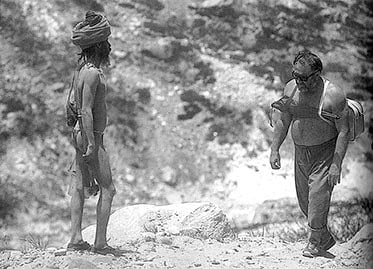
Another revelation is that Whillans' legendary wit only emerged fully quite late in his career, and far from becoming more difficult as he aged, he had in fact been quite difficult from the start – 'definitely a bit grumpy', for example, when Paul Ross first knew him, and 'not the witty Don Whillans of later years'. 'You didn't mess with Don in those days,' was how Vin Betts puts it.
It seems, then, that right from the start there was a problem. Don was certainly not liked by all his mates, particularly the Manchester crowd who had gathered around Brown. There were mixed opinions about him, with words like 'obstreperous' and 'uncouth' being used. Ronnie Dutton says he 'instinctively didn't like him when they first met ... He was cocky as fuck, wouldn't share or join in that much, combed his hair all the time and that. He really thought he was Jack the Lad....'
But it was not until shortly after Joe and Don's rapid, media-attention grabbing ascent of the West Face of the Dru in 1953 that things started to go seriously wrong for Don, for Joe was invited to climb Kanchenjunga, the third highest mountain in the world, and Don, most conspicuously, was not. In Dutton's words, 'Don felt he had been jilted, and grew very, very jealous of Joe... It was "hell hath no fury like a Whillans scorned" ...'
The way Perrin relates Don's style of new routes at this time to his possible state of mind is very compelling: 'The adjectives that suggest themselves to me in respect of his [routes of 1955] would be shadowy, forbidding, aggressive, unappealing, overbearing, insecure, flaky, fissile. Was that how he saw himself after his imagined rejection for Kanchenjunga?...'
The pity of it was that Whillans was already universally acknowledged by his peers to be the most talented and safest partner to climb with; in Joe Brown's words, 'the spiky side of Don's nature was dormant on the mountain'. It was at a social level, and at base camp, that problems were likely to occur. Joe's natural charm, manners and vastly superior social skills, meant he mixed easily and naturally with the mountaineering establishment, whereas the spiky Don – who frequently played the narrow-minded little Englander abroad – was already perceived as a liability.
So, it is a tale of losing out, first to Joe (with Kanchenjunga, and again in 1956, with the Muztagh Tower), and then to Chris Bonington in 1962 with the first British ascent of the North Face of the Eiger. Bonington and Whillans had spent much of the summer sitting out bad weather at Alpiglen, and then Whlllans, whose money had run out and who felt that the season was over, headed for home, while the wily Bonington, well aware that the Alps can produce a fine spell of weather in September, stayed on and went on to climb it with Ian Clough to huge public acclaim. Once again Don was 'consumed by bitterness', which exploded into a vicious letter to Bonington, in which he accused him of 'cheapening the climb and selling out to commercialism.' (With commendable restraint, Perrin spares us any direct quotations.)
Bonington actually comes out of all this extremely well because, despite Whillans' rancour, it was he who invited him, eight years later, on the South Face of Annapurna expedition, which was to be the crowning achievement of Don's career and perhaps the most momentous ascent up to that time in the whole history of mountaineering. But then, as Perrin puts it, 'it remained only to go down', and it was indeed thereafter downhill all the way. There were the International and European fiascos on Everest in 1971 and 1972, and he was pointedly not invited by Bonington on his 1972 and later, successful 1975, South-West Face expeditions.
At home, things went from bad to worse. In 1975, in a disgraceful episode which cost him the MBE for which he'd been recommended, the 45-year old Don was arrested for drink-driving and assaulting three policeman. He was two-and-a-half times over the legal limit, and even once he had finally been brought under control he spent twenty minutes screaming in a cell before he calmed down.
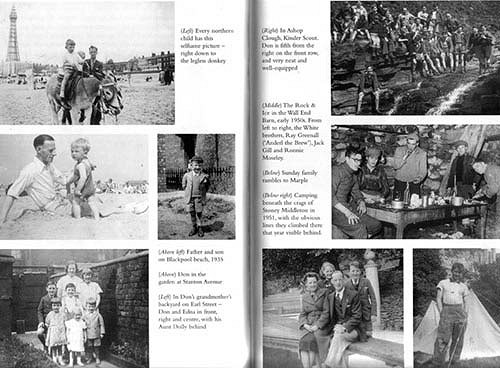
I have two smallish reservations about this stupendous book in which the myth of Whillans is fully dissected and every nuance of climbing politics is sharply delineated. The first concerns Whillans' home and private life. His family background is only very sketchily covered, and Perrin suggests a much happier childhood ('comfortable and stable') than is implied by the Ormerod-edited autobiography. We learn from a childhood friend that his father 'always cooked him breakfast', and that his parents were 'good people, and there was always warmth about the house.' Perrin refers to Don's 'adored father', and yet the only times we hear about him after 1941 are when Don borrows money – an element of scrounging being one of the themes running through his life – for motorbikes in 1952 and 1955, and again for his first house when he gets married in 1958 (£200, almost all his father's life savings, while Don and Audrey scrape together the remaining £20). There is no mention of how long Don's father lived, and of his mother we are simply told that she died in 1985 (the same year as Don). Far from being 'adored' by Don I suspect that his parents were very much neglected by him. It is possible that they did not even get on very well, but again we are not told.
Similarly, Perrin refrains from any discussion of Don's childless marriage to Audrey; all we are told, in her spectacularly understated words, is that 'it wasn't always a bed of roses'. Many questions remain unanswered there.
My other reservation is that Perrin's very literary, romantic-leaning, style at times seems at odds with the essentially unpoetic subject matter, and nowhere is this more apparent than at the beginning and the end of the book. In stark contrast to the picture painted in the Whillans-Ormerod book, the Irwell River in the Adelphi district of Salford where Don grew up is depicted as 'a marvellous adventure playground', and the distant backdrop of the Peak (here Perrin quotes another Mancunian author) becomes 'the ramparts of Paradise'.
And then there is the final self-consciously 'beautiful', lyrical, yet somewhat redundant 'Envoi', which ends, incongruously, with some words of the philosopher Ludwig Wittgenstein (I would love to have heard Don's reaction to this!) I'm not sure what to make of this section, or if it really adds anything. The tone is one of darkness and sadness, so that when Perrin mentions again the recurring theme of the 'grit' in Whillans' soul I find this rather unconvincing; indeed I am left with a certain hollowness. Perhaps that is exactly what Perrin intends to imply: that there was indeed some deep unhappiness, a fundamental hole at the center of Whillans' existence (and his unhappy marriage is certainly one pointer).
I believe that, far from having 'grit in his soul', he was in Greg Child's telling words (after Don's very last expedition – to the Karakoram in 1983) 'a sheep in wolf's clothing; a guy who played the hard exterior but who was really a soft-hearted person.' Child goes on to suggest that there was a 'vulnerability in him', and another friend speaks of 'a core of kindness in his spirit'. Joe Brown himself generously calls him 'a mixture of he-man and saint'.
The overall emotion we are left with, then, at the end of this monumental, masterful book, is one of sadness and regret; the feeling that Whillans was not perhaps (despite Ronnie Wathen's 'Ode' to Don at his funeral) 'the greatest climber of his age' and that neither the man or his achievements (a mere fraction of Brown's – he did no new rock climbs at all after his twenties) were all that they have traditionally been hyped up to be. That he was indeed, in Perrin's words, 'the most gifted nearly-man of British mountaineering'.




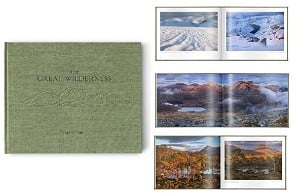
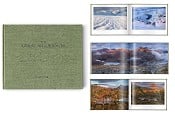
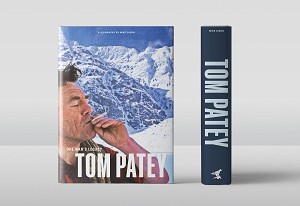

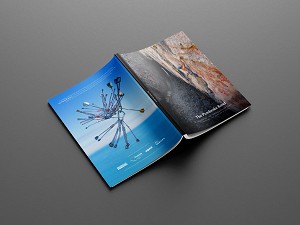
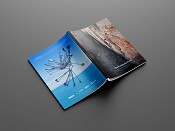
Comments